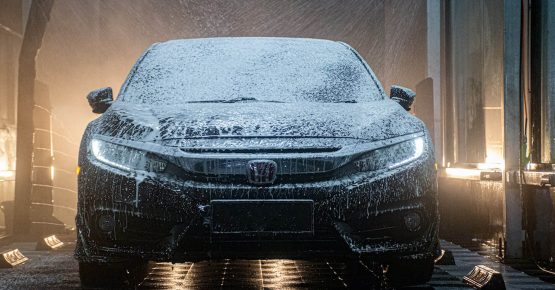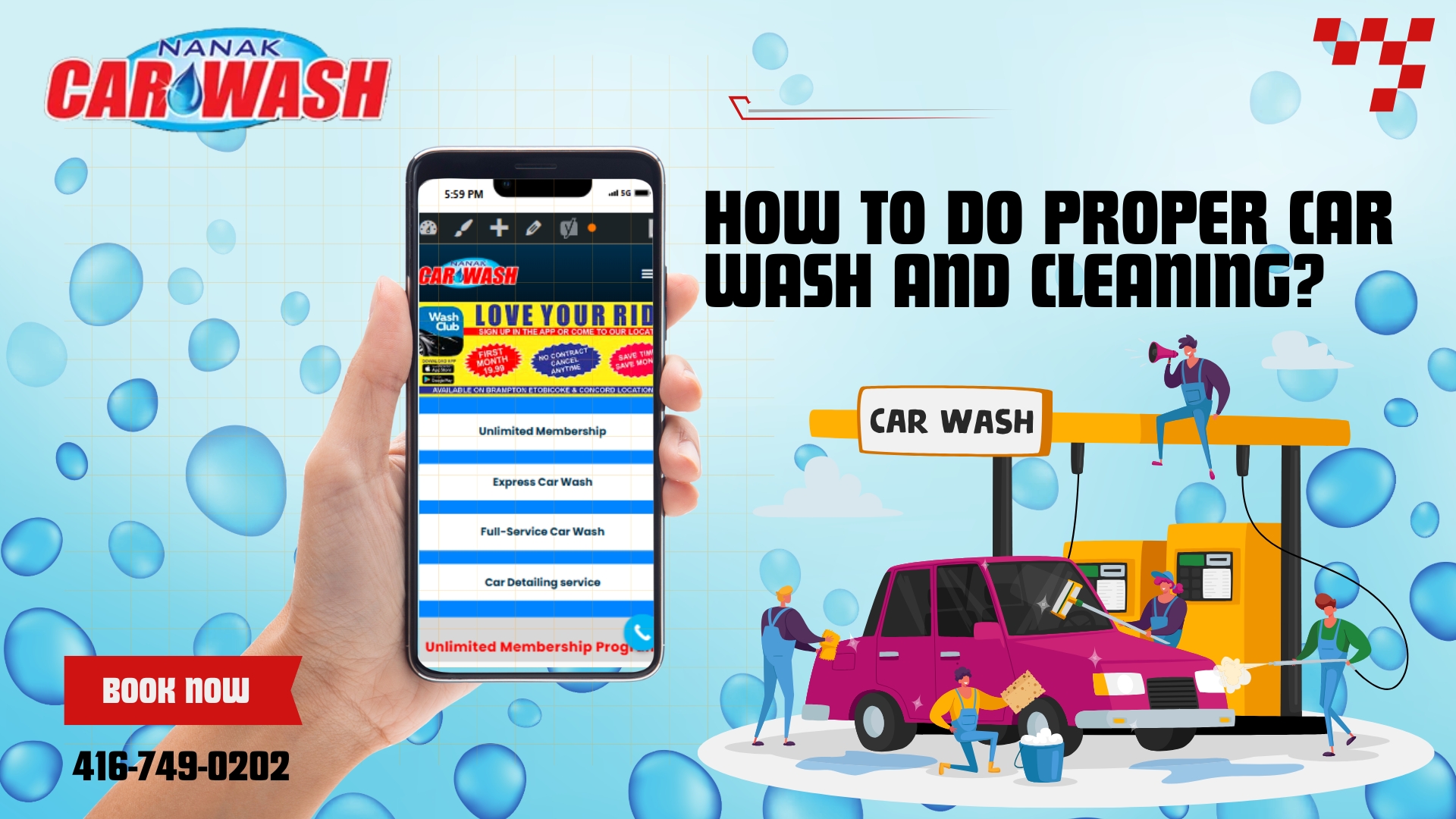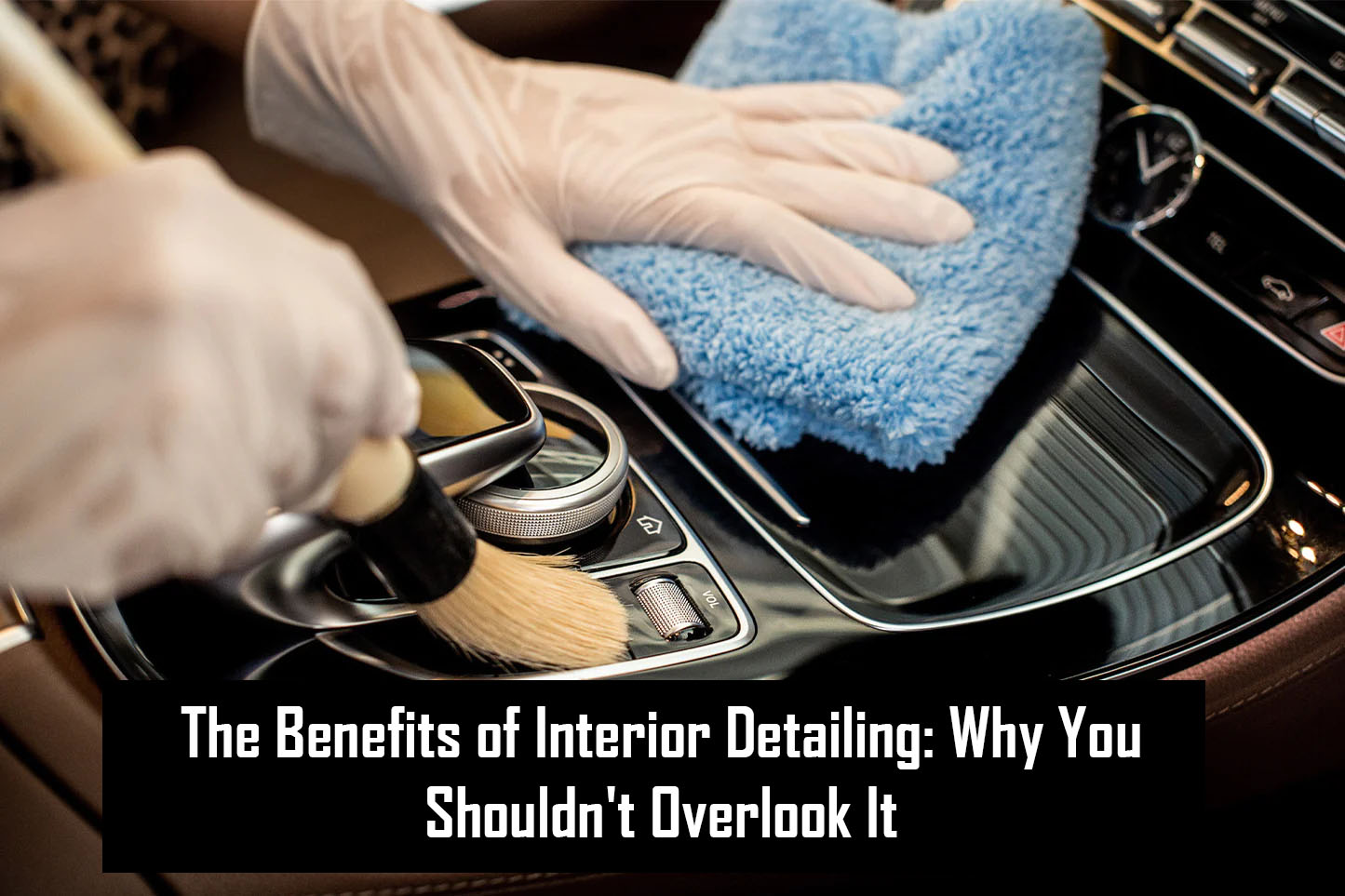
Your vehicle is more than just a means of transportation; it’s a reflection of your personal style and taste. Whether you’re cruising down the highway or parked in a crowded lot, you want your car to turn heads for all the right reasons. That’s where regular car washes come in.
With a simple trip to the car wash, you can maintain that brand new look and keep your vehicle in pristine condition. Gone are the days of dirty cars and unsightly road grime. Regularly washing your car not only removes dirt and debris that can damage your vehicle’s paint job, but it also helps to prevent rust and corrosion from taking hold.
Incorporating a regular car wash into your routine is an investment in the longevity of your vehicle. By keeping your car clean and free from contaminants, you can enjoy a sleek and polished ride for years to come. So why wait? Drive in style with regular car washes and keep your vehicle looking brand new.
Importance of regular car washes
Regular car washes are an essential part of car maintenance that often gets overlooked. Many car owners underestimate the impact that dirt, dust, and grime can have on their vehicle’s appearance and overall condition. By regularly washing your car, you can remove these contaminants and help preserve the pristine look of your vehicle.
One of the most significant benefits of regular car washes is the prevention of damage to your car’s paint job. Dust particles, bird droppings, and other debris can accumulate on your car’s surface and, over time, cause scratches and swirl marks. Additionally, road salt and chemicals used for de-icing during winter months can corrode the paint and lead to rust formation. By washing your car regularly, you can remove these contaminants and protect the integrity of your vehicle’s paint.
Regular car washes also play a crucial role in preventing rust and corrosion. As you drive, your vehicle is exposed to various elements such as rain, mud, and salt, which can settle on the undercarriage and other vulnerable areas. Over time, this accumulation can lead to rust formation, compromising the structural integrity of your car. By regularly washing your vehicle, you can eliminate these corrosive substances and extend the lifespan of your car’s body and components.
In addition to protecting your car’s exterior, regular car washes also contribute to the overall cleanliness and hygiene of your vehicle’s interior. Dust, dirt, and debris can find their way inside your car through open windows and vents. Regularly cleaning the interior surfaces, including the dashboard, seats, and carpets, can help maintain a fresh and pleasant driving environment.
Benefits of a clean car
Keeping your car clean goes beyond maintaining its appearance; it also offers several practical benefits. A clean car is a safer car. When your windows, mirrors, and headlights are free from dirt and grime, your visibility improves, reducing the risk of accidents. Additionally, a clean windshield ensures that rainwater and other liquids bead off, providing better visibility during inclement weather conditions.
A clean car also helps to maintain its value. Whether you plan to sell or trade-in your vehicle in the future, having a well-maintained and clean car can significantly impact its resale value. Potential buyers are more likely to be attracted to a vehicle that looks well cared for and free from stains or odors.
Furthermore, regular car washes contribute to the overall health and well-being of your car. By removing dirt, pollen, and allergens from your car’s interior, you create a healthier environment for both you and your passengers. It also helps to eliminate unpleasant odors that can accumulate over time, ensuring a pleasant driving experience.
Common car washing mistakes to avoid
While regular car washes are essential, it’s equally vital to avoid common car washing mistakes that can inadvertently harm your vehicle. One common mistake is using abrasive materials, such as harsh brushes or sponges, which can scratch your car’s paint. It’s essential to choose soft, microfiber cloths or mitts specifically designed for car washing to minimize the risk of scratches.
Another mistake to avoid is washing your car in direct sunlight or when the surface is hot. This can cause the water and cleaning products to dry quickly, leaving behind streaks and water spots. It’s best to wash your car in a shaded area or during cooler parts of the day.
Additionally, be cautious when using household cleaning products on your car’s exterior. These products can contain chemicals that may damage the paint or other surfaces. Instead, opt for specialized car wash soaps that are formulated to be gentle on your vehicle’s paint.
Different types of car washes
When it comes to car washes, you have several options to choose from, depending on your preferences and budget. The most common types of car washes include self-service car washes, automatic car washes, and hand car washes.
Self-service car washes allow you to wash your car yourself using the provided equipment and cleaning products. These car washes are typically coin-operated and give you control over the amount of time and attention you dedicate to each part of your vehicle. They are a cost-effective option if you enjoy a hands-on approach to car washing.
Automatic car washes, on the other hand, offer convenience and efficiency. These car washes use computer-controlled systems to wash your car without any manual labor. They often include brushes or high-pressure water jets to clean your vehicle thoroughly. Automatic car washes are a popular choice for those looking for a quick and hassle-free car wash experience.
If you prefer a more personalized touch, hand car washes provide a more detailed and meticulous cleaning. Hand car washes are typically performed by professional detailers who pay close attention to every inch of your vehicle. They use specialized tools and techniques to ensure a thorough and gentle cleaning process. While hand car washes may be more expensive, they offer a higher level of care and attention to detail.
DIY car wash tips
If you decide to wash your car yourself, there are several tips and techniques you can follow to achieve professional results. Start by rinsing your car with water to remove loose dirt and debris. This prevents any scratching that may occur when you begin washing.
Next, use a high-quality car wash soap and a soft microfiber cloth or mitt to gently scrub the surface of your vehicle. Work in small sections, starting from the top and moving down to the bottom. Rinse your cloth or mitt frequently to prevent dirt from being redistributed onto your car’s surface.
When it comes to drying your car, opt for a clean, microfiber drying towel. Avoid using regular towels or chamois, as they can leave behind lint or scratches. Gently dry your car by blotting, rather than rubbing, to minimize the risk of swirl marks.
Finally, pay attention to the details. Clean your wheels and tires using a separate brush and specialized wheel cleaner. Use a toothbrush or detailing brush to clean hard-to-reach areas such as door jambs and crevices. Finish off by applying a coat of wax or sealant to protect your car’s paint and give it a shiny finish.
How often should you wash your car?
The frequency of car washes depends on several factors, including your location, driving conditions, and personal preference. As a general rule of thumb, it’s recommended to wash your car at least once every two weeks.
However, if you live in an area with harsh weather conditions, such as excessive heat, salted roads, or heavy pollution, you may need to wash your car more frequently. Additionally, if you notice bird droppings, tree sap, or other contaminants on your car, it’s best to wash them off as soon as possible to prevent any potential damage.
Ultimately, the best practice is to observe your car’s condition and wash it when necessary. Regularly inspecting your vehicle and addressing any dirt or grime buildup promptly will help maintain its appearance and prevent long-term damage.
Choosing the right car wash products
When it comes to choosing car wash products, it’s essential to use high-quality, pH-balanced soaps and cleaners specifically formulated for automotive use. Avoid using dish soap or household cleaners, as they can strip away the protective wax and damage your car’s paint.
Look for car wash soaps that are gentle on your vehicle’s finish and provide sufficient lubrication to minimize the risk of scratching. Additionally, consider using a separate wheel cleaner to effectively remove brake dust and road grime from your wheels without harming the finish.
Investing in quality car wash products may come with a higher upfront cost, but they will ultimately help preserve your car’s appearance and protect its value in the long run.
Professional car wash services
If you prefer to leave the car washing to the experts, professional car wash services offer a convenient and thorough option. These car wash facilities employ trained professionals who use advanced equipment and techniques to clean your vehicle efficiently.
Professional car wash services often offer a range of packages to suit different needs and budgets. Basic packages typically include exterior cleaning, while more comprehensive packages may include interior vacuuming, window cleaning, and tire dressing. Some car wash services even offer additional services such as paint protection treatments or ceramic coatings to provide long-lasting shine and protection.
While professional car wash services may come at a higher cost compared to DIY options, they offer the advantage of time-saving and professional results. Additionally, many car wash facilities recycle water and use environmentally friendly cleaning products, making them a more sustainable choice.
Car detailing and its role in maintaining a brand new look
Car detailing takes car cleaning to the next level. It involves a thorough cleaning and restoration process that goes beyond a regular car wash. Car detailing professionals focus on restoring the appearance of your vehicle by removing imperfections and enhancing its shine.
Car detailing typically includes a meticulous cleaning of both the interior and exterior of your car. Detailers use specialized tools, such as clay bars, polishers, and steam cleaners, to remove contaminants and restore the paint’s smoothness and shine. They also pay attention to finer details, such as cleaning door jambs, polishing chrome accents, and conditioning leather surfaces.
In addition to the visual enhancements, car detailing can also help protect your vehicle from environmental factors and preserve its resale value. Detailers often apply protective coatings, such as wax or ceramic coatings, to provide a barrier against UV rays, dirt, and other contaminants. These coatings can prolong the life of your vehicle’s paint and make future cleanings easier.
Car detailing is typically recommended every few months or as needed, depending on your car’s condition and your personal preferences. While it may require a larger investment compared to regular car washes, the results can be truly transformative, leaving your car looking and feeling brand new.
Conclusion
Regular car washes are more than just maintaining a clean appearance; they are essential for the longevity and overall condition of your vehicle. By incorporating regular car washes into your routine, you can protect your car’s paint, prevent rust formation, and maintain a sleek and polished look.
Whether you choose to wash your car yourself or opt for professional car wash services, the benefits of regular car washes are undeniable. A clean car not only enhances its visual appeal but also contributes to safer driving, better resale value, and a healthier driving environment.
So, why wait? Drive in style with regular car washes and keep your vehicle looking brand new for years to come. Your car deserves the best care, and a regular car wash is a small investment that can make a big difference. Start today and enjoy the benefits of a clean and well-maintained vehicle.






